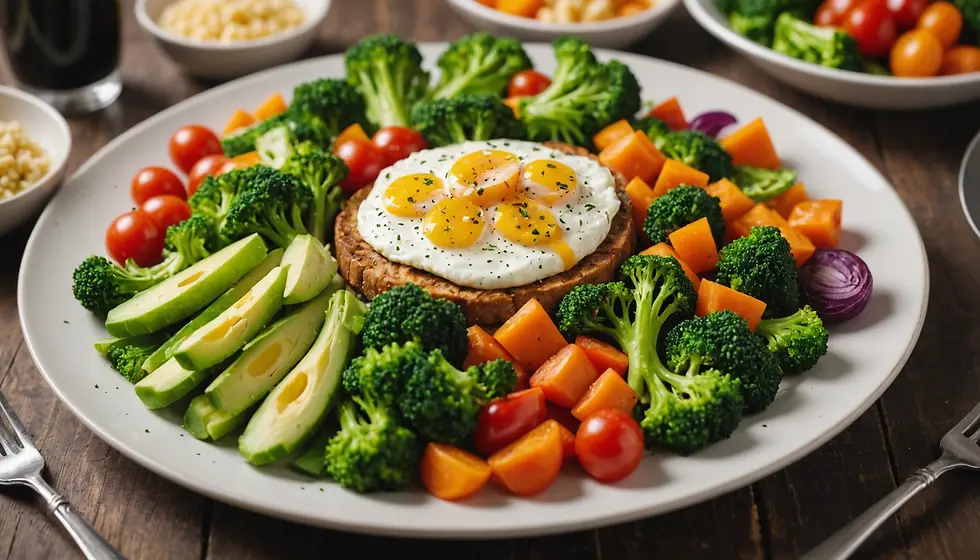"Is Intuitive Eating the Key to a Healthier Relationship with Food?"
- Tori Willows
- May 20, 2024
- 3 min read
Updated: Mar 11

In a world inundated with diet culture and conflicting nutritional advice, many individuals find themselves trapped in a tumultuous relationship with food. The relentless pursuit of restrictive diets often leads to feelings of guilt, shame, and anxiety surrounding eating habits, rather than fostering a genuine sense of well-being. In the midst of this chaos, the concept of intuitive eating emerges as a beacon of hope, offering a path toward healing and liberation from food-related struggles.
So, what exactly is intuitive eating?
Intuitive eating is not a diet; it's a philosophy that encourages individuals to tune into their body's natural hunger and fullness cues, as well as their emotional and psychological responses to food. Developed by Evelyn Tribole and Elyse Resch in the 1990s, intuitive eating emphasizes self-care, body acceptance, and the rejection of dieting mentality.
At its core, intuitive eating promotes the idea that all foods can fit into a balanced diet and that there are no "good" or "bad" foods. Instead of relying on external rules and restrictions, individuals are encouraged to trust their body's wisdom and make food choices that honor their physical and emotional needs.
But is intuitive eating truly the key to a healthier relationship with food?
Research and anecdotal evidence suggest that it very well could be. Here's why:
Promotes Mindful Eating: Intuitive eating encourages mindfulness during meals, allowing individuals to savor and fully experience the pleasure of eating. By paying attention to hunger and fullness cues, people are less likely to overeat or engage in mindless snacking.
Fosters Body Acceptance: Intuitive eating shifts the focus away from weight and external appearance, promoting body acceptance and self-love. This emphasis on body respect helps individuals develop a more positive body image, regardless of their size or shape.
Breaks Free from Food Rules: Traditional diets often impose rigid rules and restrictions, leading to feelings of deprivation and guilt. Intuitive eating encourages flexibility and autonomy in food choices, empowering individuals to make decisions based on their own preferences and hunger cues.
Improves Psychological Well-being: By rejecting the dieting mentality and embracing self-compassion, intuitive eating can lead to improvements in psychological well-being. Research has linked intuitive eating to reduced levels of anxiety, depression, and disordered eating behaviors.
Sustainable Approach to Health: Unlike fad diets that promise quick fixes but are unsustainable in the long run, intuitive eating offers a lifelong approach to health and wellness. By cultivating a balanced and intuitive relationship with food, individuals can enjoy nourishing meals without feeling trapped in a cycle of restriction and deprivation.
However, it's essential to recognize that intuitive eating is not a one-size-fits-all solution. It requires patience, practice, and a willingness to challenge deeply ingrained beliefs about food and body image. Additionally, for individuals with a history of disordered eating or medical conditions that necessitate dietary restrictions, intuitive eating may need to be adapted with the guidance of a healthcare professional.
To sum it up, intuitive eating holds tremendous promise as a pathway to a healthier relationship with food. By embracing principles of self-care, mindfulness, and body acceptance, individuals can break free from the shackles of diet culture and discover a newfound sense of freedom and joy in eating. So, if you're tired of dieting and ready to reclaim your relationship with food, perhaps it's time to give intuitive eating a try. Your body and mind will thank you for it.
Please email me a Free Intuitive Eating Worksheet



